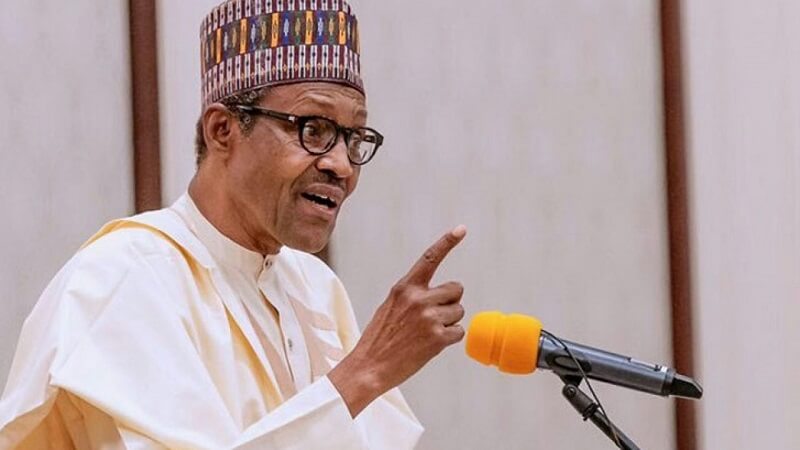Nigeria’s Independent National Electoral Commission (INEC), on Wednesday, declared incumbent President Muhammadu Buhari of the ruling All Progressives Congress (APC) as winner of the February 23 presidential election.
According to INEC, President Buhari trounced his main challenger in the election, Atiku Abubakar of the opposition Peoples Democratic Party (PDP), by polling 15.1 million votes while the latter received 11.2 million votes.
Advertisement
A few foreign media organisations, including the Economist, BBC, and New York Times, have reported the outcome of the polls and also predicted what the next four years may hold for President Buhari.
In its report, the BBC said the presidential election was marred with delays and violence, but noted that no independent observer has so far cited electoral fraud in the poll.
The medium reported some of the challenges Buhari’s government may face in the next term as the growing corruption that has beleaguered the country’s economy.
‘‘The breadth and depth of corruption is so great, it affects so many aspects of public life that making serious inroads into the problem would require a focus, energy and application that was lacking in President Buhari’s first term.
Advertisement
‘‘The second problem he faces in fighting corruption is having the necessary political support. There is undoubted public backing but Mr Buhari’s party is compromised by senior members suspected of enriching themselves through graft. The fear is that across the board the looters will carry on pretty much as normal.
‘‘Economically, ending the dependency on oil revenues needs to happen at a much faster pace. The World Bank has predicted sluggish economic growth: 2.2% for the coming year in a country with unemployment of more than 20% and nearly half the population living in extreme poverty’’ said the BBC.
The medium further predicted that the next four years of Buhari as Nigeria’s President will be characterised by a range of security threats including the lingering clashes between farmers and Fulani herdsmen.
‘‘President Buhari also faces an array of security threats from clashes between farmers and herdsmen in the Middle Belt, continuing instability in the Niger Delta and – most worrying of all – a revived threat from Islamic extremists in the north of the country,’’ it said.
On its part, The Economist, an international business publication which earlier predicted victory for Atiku over Buhari, said although President Buhari clearly won the election, ‘‘his victory this time will not generate the same euphoria it did in 2015.’’
Advertisement
This, the magazine, said was due to the fact that President Buhari has failed to keep to the promises he made during his campaigns in the run up to the 2015 presidential election.
‘‘The former general, who ruled briefly as the country’s military dictator after a coup in the 1980s, has struggled to fulfil many of the campaign promises he made four years ago. Mr Abubakar’s People’s Democratic Party (PDP) claims the results were rigged. In a sign of growing voter apathy, turnout, which languished at 44% in 2015, has probably slipped below 40% this time.’’
The Economist further described the February 23 election through which Buhari secured another term as pigeonholed by vote-buying, even though it noted that the two leading political parties in the poll were guilty of the electoral offence.
‘‘Vote-buying was more widespread. Mr Buhari’s All Progressives’ Congress (APC) and the PDP were probably both culpable. In a posh neighbourhood of Lagos, Nigeria’s economic capital, one resident says he saw a man on the street handing out cash on voting day. On the eve of the vote, a journalist in Yola said a politician gave his wife sachets of spices to hand out to voters in her village.’’
The New York Times, in its coverage of the poll, described the final outcome as ‘‘a tribute to the power of incumbency.’’
On Buhari’s anti-corruption fight, the organisation identified the President’s perceived target for political opponents and his shying away from corruption allegations against members of his party, ‘‘including a governor caught on camera handing out a bribe,’’ as some of the reasons why he may have lost credibility and supporters as witnessed in the 2019 elections.
Advertisement
‘‘Yet the president, who is 76, managed to overcome his deficits, and in some ways benefited from them. Turnout was low on Election Day, a factor that buoyed the president’s fortunes since his loyalists were among those who bothered to vote in a race that had once been too close to call. Some analysts said many voters had stayed away from the polls because of despondency over the failures of the past four years’’ said the New Your Times.
On Atiku, the medium said: ‘‘Voters rejected Mr. Abubakar, 72, a former vice president who was considered so corrupt by the United States that he was refused a visa for many years. But Mr. Abubakar’s campaign focused on an issue that resonated with many voters: improving the economy. His raft of proposals included privatizing some government operations and floating the currency.’’
Meanwhile, Mr Atiku, on learning of INEC’s declaration of President Buhari as winner of the election on Wednesday, rejected the result. He said he will be seeking legal means to retrieve the mandate willing given to him by the electorate.



